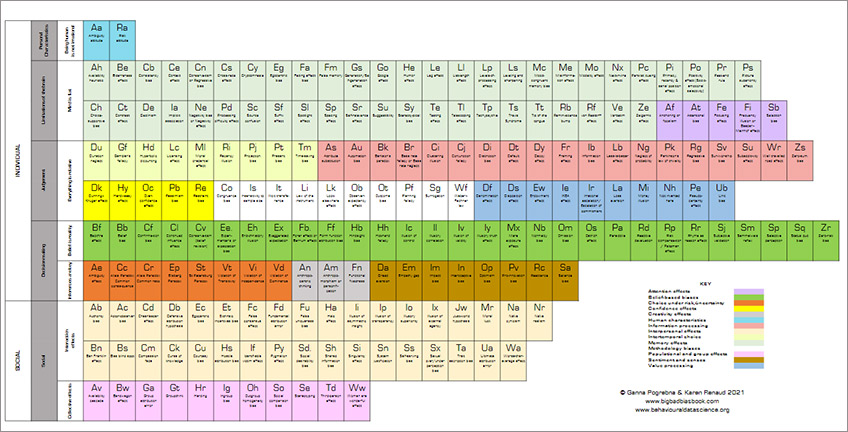The three strands of Behavioural Data Science
- Human behaviour – seeks to understand how customers make decisions, based on their behavioural traits. For example, behavioural data science can help us identify customers with a present bias (a tendency to choose a smaller reward now than to wait for a larger reward in the future) which helps us understand why some customers opt for particular products and services.
- Algorithmic behaviour – considers how various algorithms (e.g. chatbots, automated systems, decision support algorithms) make decisions, what potential biases these decisions might have and how to ensure the algorithms we build are not only useful, but also based on responsible principles.
- Systems behaviour – combines human and algorithmic decision making, looking at how people can communicate with technology, to ensure that the complex systems around us deliver the best results for our financial wellbeing. For example, this strand allows us to build more desirable customer journeys making sure that customers who are happy to embrace technology get technology-enhanced solutions, while others receive human customer support.
Behavioural Data Science is truly a game changing field. It is currently impacting and it will continue to influence financial services for the foreseeable future. Behavioural Data Science opens the door to new ways of understanding customers, consumer behaviour and helps us understand ways we can better design products and services to improve the financial wellbeing of our customers and communities.
Our behavioural science experts
Alexander Kharlamov is a behavioural scientist at CommBank. He is a cross-disciplinary scientist combining insights from behavioural science, industrial engineering, cybersecurity, management, data science, and business analytics to help businesses achieve better outcomes, design better systems, and encourage staff and customers to make better choices and have fewer regrets. His core interests include mechanisms of trust, perceived vulnerability, risk perception, behavioural segmentation, social engineering, planning mistakes, naïve interventionism, systemic and algorithmic behaviour.
Alexander has a PhD in Engineering specialising in Behavioural Operations Research from the University of Warwick; a Master's degree in Management specialising in Visual Analytics in Operations Management from Cranfield School of Management and a Master's in Industrial Engineering specialising in Supply Chain Segmentation from the University of Aveiro.
Jeroen Nieboer is the Behavioural Data Science and Research Lead at CommBank. He first became interested in consumer finance while doing research at the London School of Economics, where he retains a visiting role. Before joining CommBank, Jeroen worked at as a Technical Manager for the UK's Financial Conduct Authority, designing behaviourally informed policy and leading policy evaluations in the world's first Behavioural Economics and Data Science team. Jeroen has worked on a wide range of topics on the intersection of retail finance and behavioural economics, such as advice, consumer credit, financial wellbeing and experimentation. He also occasionally gets to study social influence on decision-making, a topic that has fascinated him for many years. He holds a PhD in Economics from the University of Nottingham.
Ganna Pogrebna is Professor of Behavioural Business Analytics and Data Science at the University of Sydney. She also serves as a Lead of Behavioural Data Science strand at the Alan Turing Institute – the national centre for AI and Data Science in London (UK). Blending behavioural science, AI, computer science, data analytics, engineering, and business model innovation, Ganna helps leaders in businesses, charities, and the public sector to better understand why they make decisions they make and how they can optimise their behaviour to achieve higher profit, better social and commercial outcomes, as well as flourish and bolster wellbeing of their teams.
In January 2020, Ganna won the TechWomen100 – the prize awarded to leading female experts in Science, Technology, Engineering and Mathematics in the UK. She runs the Data Driven blog on YouTube, cybersecurity blog CyberBitsEtc, as well as Inclusion AI blog.


